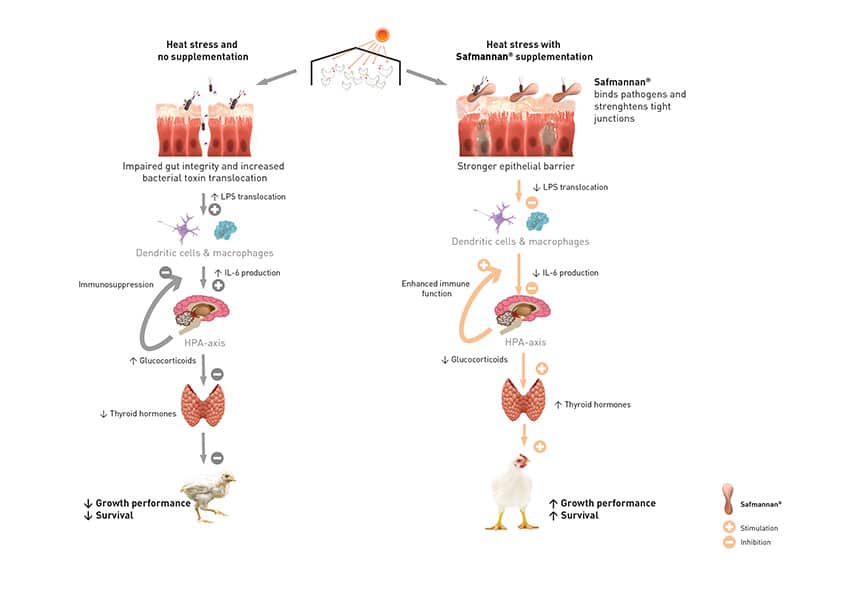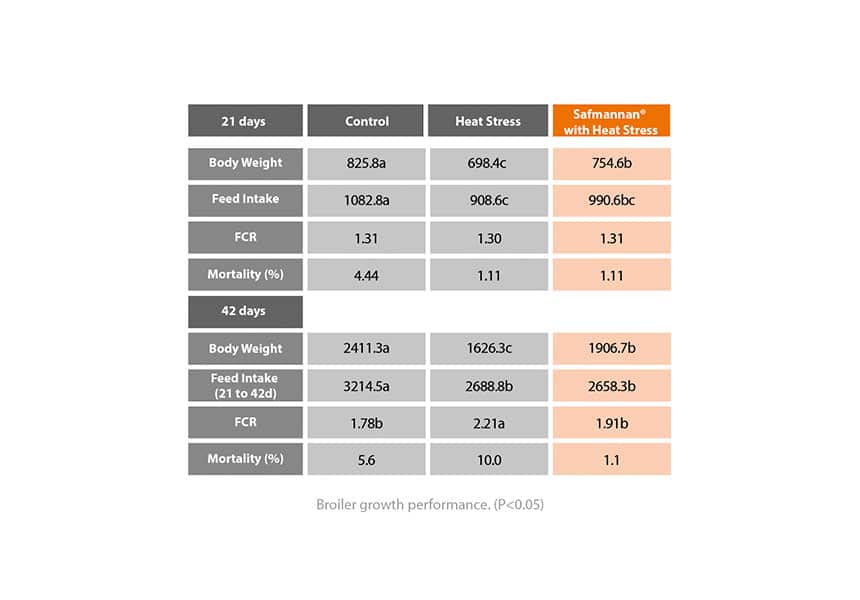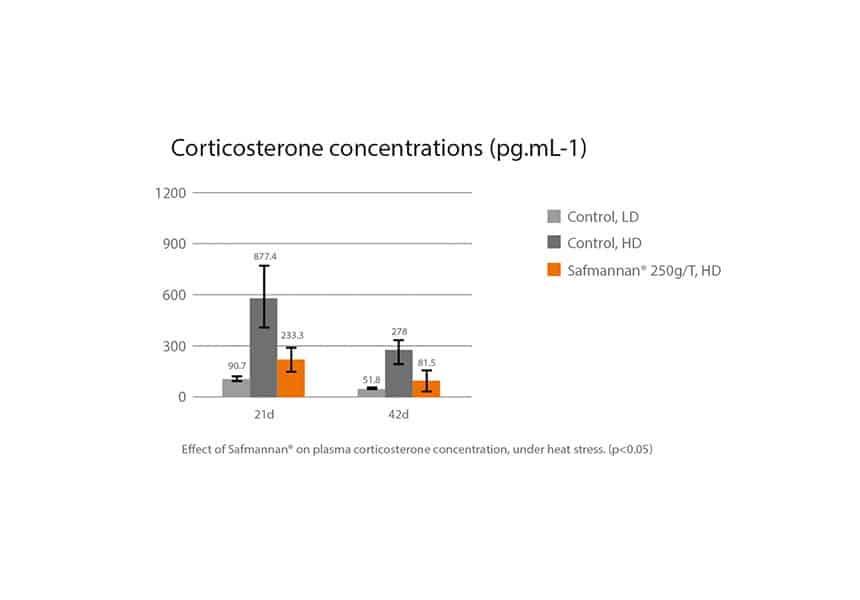Heat stress management in broilers
The need to reduce heat stress and oxydative stress in poultry is crucial to maintain bird performance and optimal margins for farmers.
Poultry appear to be particularly sensitive to environmental challenges, such as high temperatures combined with high humidity, commonly called heat stress. About 50% of global poultry production is located in tropical areas, with big future growth forecast in Asia, Africa and Latin America. In these areas, and some temperate regions with hot seasons, high temperatures can be detrimental to commercial poultry. When coupled with high humidity, the effects can be devastating.
Global warming is also a significant factor with temperatures above 30°C (86°F) occurring regularly worldwide.

Heat stress in poultry farms
Various strategies can be used to reduce the negative impact of heat stress on productivity, including farm management and feeding improvements. Nutrition is also important in managing heat stress in broilers. Studies have shown that supplementing birds’ feed with Safmannan® can help broilers absorb nutrients more readily and tolerate challenging environmental conditions. Safmannan® is a premium yeast fraction, rich in mannan-oligosaccharides and beta-glucans (1.3 and 1.6), which can bind pathogens, and improve gut morphology and integrity in birds.
Supplementing heat-stressed birds with Safmannan® helps bind pathogens and support a stronger epithelial barrier. This reduces bacteria translocation and IL-6 secretion, resulting in less corticosterone secretion while maintaining immune functions, boosting bird performance.
Effects of safmannan supplementation on broilers
Sohail et al. evaluated the effect of Safmannan® supplementation on broilers subjected to chronic heat stress. 270-day-old broilers were randomly divided into 3 groups. The temperature on D1 for the heat stress group and the Safmannan® group (500 g/T) was maintained at 35 ± 2°C, staying constant until D42. The control group temperature was set at 35 ± 2°C on D1 before being decreased by 3°C per week until it reached 26 ± 2°C.
Growth performance was measured on D21 and D42. Corticosterone plasma concentrations were evaluated in 30 birds from each group on D21 and D42. The heat stress group had 18.3% less body weight gain on D21 and 49.6% less on D42, compared with the control group. Safmannan® supplementation increased body weight gain by 8.1% on D21 and 17.7% on D42, compared with the heat stress group. At D42, broilers supplemented with Safmannan® had the same FCR as the control group birds.
Reducing the negative effects of heat stress with Safmannan®
Elevation of serum corticosterone levels is considered an indicator of heat stress (Quinteiro-Filho et al., 2010). Broilers supplemented with Safmannan® presented lower serum corticosterone concentrations than the heat stress group on D21 and D42, and the same level as the control group.
Supplementation with Safmannan® can help reduce the detrimental effects of chronic heat stress by supporting the immune system, controlling inflammation and maintaining gut integrity, thus boosting nutrient absorption, essential for bird growth. Safmannan® has proved vital in global heat stress preventive measures.

















